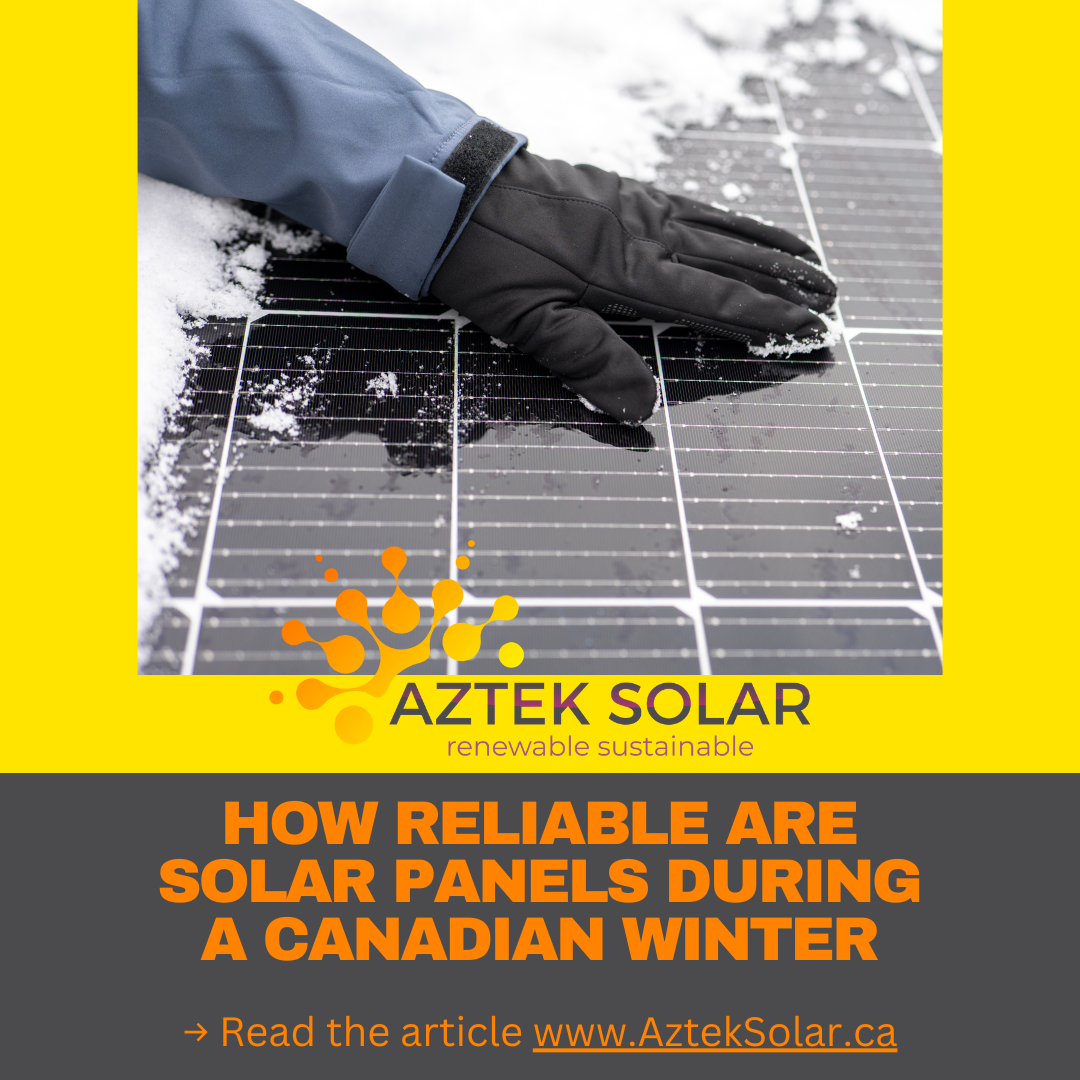How Solar Energy Powers My Home - Step by Step
Solar energy is a clean, sustainable, and renewable source of energy that is becoming increasingly popular in Atlantic Canada. Harnessing the power of the sun to generate electricity for your home is an excellent way to reduce your carbon footprint, lower your energy bills, and contribute to a healthier planet.

In this blog post, we will walk you through the step-by-step process of how solar energy can power your home in Atlantic Canada.
Step 1: Assess Your Energy Needs
The first step to powering your home with solar energy is to assess your energy needs. Determine how much energy you consume on a daily, weekly, and monthly basis. You can do this by reviewing your past energy bills or by using an online energy calculator.
Once you have a clear idea of your energy needs, you can begin to design a solar system that meets those needs. A professional solar installer can help you determine the size and capacity of the solar panels you will need to power your home.
Step 2: Evaluate Your Home’s Solar Potential
The next step is to evaluate your home’s solar potential. This involves determining how much sunlight your property receives throughout the day and throughout the year. The amount of sunlight your property receives will impact the efficiency of your solar panels and the overall output of your solar system.
A professional solar installer can conduct a solar site assessment to determine the ideal location for your solar panels and the best angle for optimal energy generation. They will also evaluate your roof’s structural integrity and suitability for solar panel installation.
Step 3: Choose Your Solar Panels
Once you have assessed your energy needs and evaluated your home’s solar potential, it’s time to choose your solar panels. There are two types of solar panels to consider: monocrystalline and polycrystalline.
Monocrystalline solar panels are more efficient and take up less space, but they are also more expensive. Polycrystalline solar panels are more affordable but are less efficient and take up more space.
Your solar installer can help you choose the best solar panels for your home based on your energy needs and budget.
Step 4: Install Your Solar Panels
Once you have chosen your solar panels, it’s time to install them. Solar panel installation involves mounting the panels on your roof or on a ground-mounted system. Your solar installer will ensure that the panels are properly secured and connected to your home’s electrical system.
The installation process typically takes a few days, depending on the size and complexity of your solar system.
Step 5: Connect to the Grid
After your solar panels are installed, you will need to connect them to the grid. This involves obtaining a net metering agreement with your local utility company. Net metering allows you to sell excess energy generated by your solar panels back to the grid, which can offset your energy costs and potentially earn you money.
Your solar installer can help you navigate the net metering process and ensure that your solar system is properly connected to the grid.
Step 6: Monitor Your Solar System
Once your solar system is up and running, it’s important to monitor its performance. Monitoring your solar system allows you to identify any issues or inefficiencies and address them before they become larger problems.
Most solar systems come with monitoring software that allows you to track your energy production in real-time. Your solar installer can also provide regular maintenance and servicing to ensure that your solar system is functioning at peak efficiency.
If you are looking to switch to solar energy but the above steps seem daunting and/or if you have any questions in mind, don’t stress! Aztek Solar can guide you every step of the way and make your transition a smooth one.



For more information about a Solar Energy Solution, including Whole Home Solar PV and Solar Pool Heating solutions for your home or business, please contact AZTEK SOLAR for your free on-site evaluation and ask about the $3,000 cash-back rebate now available.
AZTEK SOLAR is a leading Nova Scotia residential and commercial solar installer, serving Halifax, Dartmouth and the surrounding areas throughout rural Nova Scotia.
With expertise in a wide variety of systems, including Solar PV (grid-tied) systems, solar hot water and solar pool heating systems, AZTEK SOLAR has helped hundreds of Atlantic Canadian homeowners, farm operations, business owners and municipalities lower their energy bills while reducing their carbon footprint.
#SolarIsNow #RenewableEnergy #AztekSolar


SUBSCRIBE TO OUR NEWS
Contact Us
Thank you for subscribing. We are happy to share our news with you!
- Brian McKay / Aztek Solar
Please try again later.
© 2021+ Aztek Solar Ltd. | All Rights Reserved
© 2021+ Aztek Solar Ltd. | All Rights Reserved
Digital Marketing by AtlanticOnline.ca
